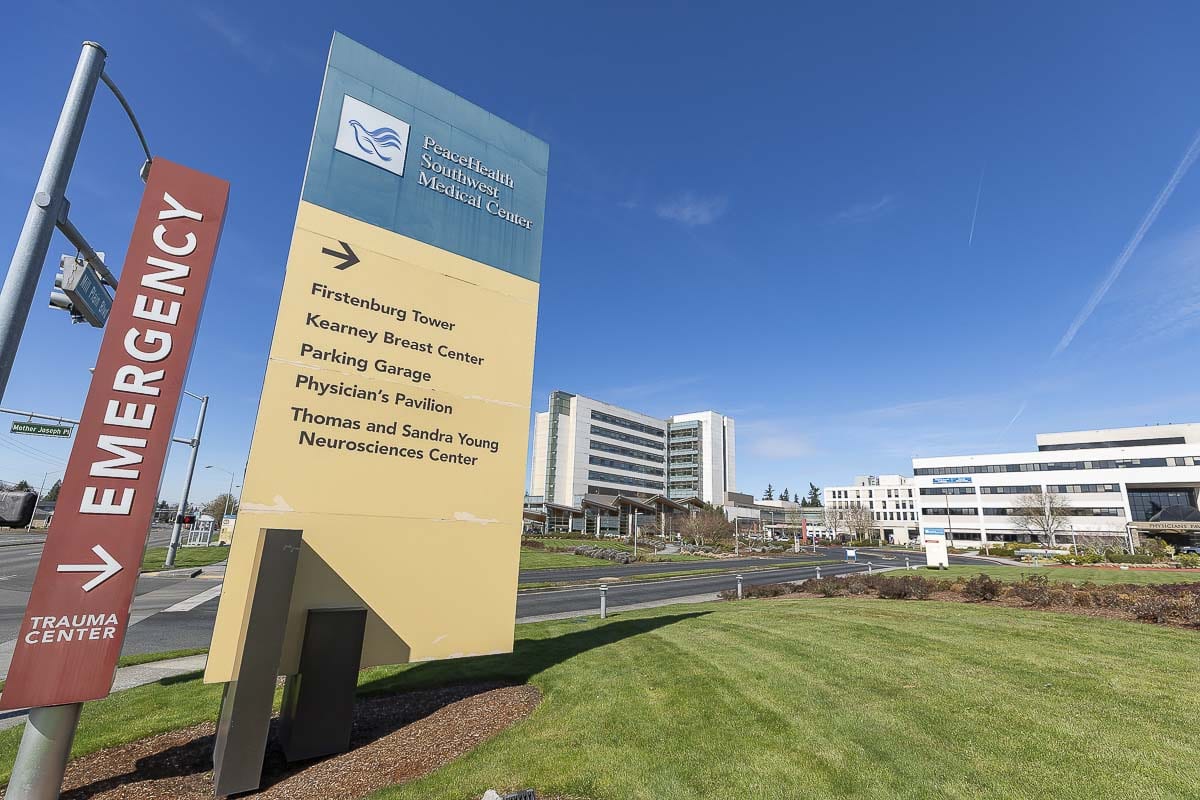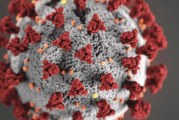Clark County Public Health and area medical officials are reminding people that local emergency departments are taking precautions to safely see patients and remain fully operational to treat patients with non-COVID-19 emergencies
VANCOUVER — Clark County residents may have concerns about visiting hospital emergency departments during the COVID-19 pandemic, but health officials are urging people to seek emergency care when necessary.
Clark County Public Health, Legacy Salmon Creek Medical Center, PeaceHealth Southwest Medical Center and Vancouver Clinic are reminding people that local emergency departments are taking precautions to safely see patients and remain fully operational to treat patients with non-COVID-19 emergencies.

Emergency departments at PeaceHealth Southwest Medical Center and Legacy Salmon Creek Medical Center have implemented practices to ensure the safety of all patients.
“Our emergency departments practice stringent infection control measures to minimize any risk to non-COVID patients. Our staff practices appropriate social distancing and we have limited the time patients stay in our waiting rooms,” Dan Bissell, M.D., with emergency services at Legacy Salmon Creek Medical Center. “Additionally, Legacy Health requires all employees and providers to wear a mask, even when in administrative areas, when it is not possible to maintain a 6-foot distance from other individuals.”
Since the coronavirus pandemic began, Legacy Salmon Creek Medical Center and PeaceHealth Southwest Medical Center have seen significant declines in emergency department visits.
“We are experiencing nearly a 50 percent drop in our average daily emergency department visits. And, we have had several cases of patients coming in for serious, emergent health issues, including heart attacks and strokes, that have delayed care to the point it has impacted their outcome,” said Jason Hanley, MD, PeaceHealth Southwest Medical Center Emergency Medicine Director. “We have taken several precautions to ensure the safety of all patients, including meeting patients at the entrance of the Emergency Department, and triaging and masking all patients outside of the entrance to limit potential COVID-19 positive patients from having contact with other patients.”
People experiencing symptoms of stroke, heart attack or other emergencies should seek immediate medical care. Delaying a call to 9-1-1 or an emergency room visit can lead to severe long term health consequences, including death.
“We know that calling 9-1-1 to seek immediate care saves lives,” said Dr. Ben John, Vancouver Clinic cardiologist. “As a cardiologist, I never want to see one of my patients delay getting the care they need. I know with COVID-19 patients have concerns coming into the office or going to the hospital. I’d like to remind our community to call for an ambulance if you or someone you love has an immediate need, like chest pain or discomfort in one or both arms, the back, neck, jaw or stomach and shortness of breath – all warning signs of a heart attack.”
Know the signs and symptoms
Remember these signs and symptoms for stroke and heart attack, provided by the American Heart Association:
Act F.A.S.T. during stroke
- Face drooping – Does one side of the face droop or is it numb? Ask the person to smile.
- Arm weakness – Is one arm weak or numb? Ask the person to raise both arms. Does one arm drift downward?
- Speech difficulty – Is speech slurred, are they unable to speak, or are they hard to understand? Ask the person to repeat a simple sentence, like “the sky is blue.” Is the sentence repeated correctly?
- Time to call 9-1-1 – If the person shows any of these symptoms, even if the symptoms go away, call 9-1-1 and get them to the hospital immediately.
Heart attack symptoms
- Chest discomfort. Most heart attacks involve discomfort in the center of the chest that lasts more than a few minutes — it may go away and then return. It can feel like uncomfortable pressure, squeezing, fullness or pain.
- Discomfort in other areas of the upper body. Symptoms can include pain or discomfort in one or both arms, the back, neck, jaw or stomach.
- Shortness of breath. This can occur with or without chest discomfort.
- Other possible signs include breaking out in a cold sweat, nausea or lightheadedness.
- Women’s most common heart attack symptom is chest pain. Some women are more likely to experience shortness of breath, nausea/vomiting and back or jaw pain.
Information provided by Clark Co. WA Communications.
More coverage:
COVID-19 Information and links





